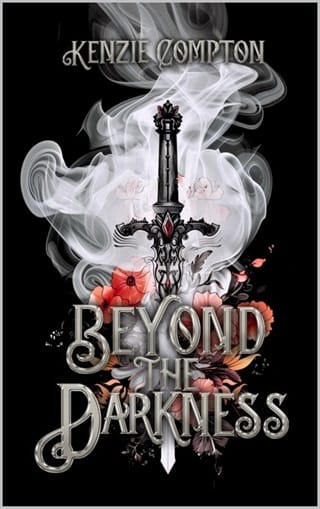Chapter Thirty-Eight
THIRTY-EIGHT
OCTOBER 1925
Irving wished he had the money to buy Goldie something special for her eighteenth birthday, but the only present he could afford was from a pushcart on Belmont Avenue—a thin silver chain with a rhinestone drop dangling precariously from the end. By the time he got it home, half of the “silver” had rubbed off on his handkerchief. But by that point, it was too late to go shopping for anything else.
Although Mr. Stern had given Irving a raise, there never seemed to be enough money for everything he and his family needed. Irving’s mother had been ill that past summer, and new hospital bills kept arriving. His brother was still going to school in Albany, still asking for money to cover room and board. The landlord who owned the four-story building where Irving and his mother lived had just informed them that the rent would be going up next month.
All of this made Irving incredibly tired. He was tired of the rumbling in his stomach, tired of the fraying cuffs on his shirts, and tired of the way his mother pretended that her morning coffee wasn’t half chicory. Still, he could have held on a bit longer—could have continued to swallow his dignity—if only the rhinestone on Goldie’s necklace hadn’t fallen off of the chain less than ten minutes after he’d fastened the flimsy clasp around her neck.
“I’m so sorry.” Irving grimaced. “I’ll take it back. I’ll get you something else.”
“You’ll do no such thing,” she said. “I love this necklace. I’m keeping it.”
“Come on, Goldie,” Irving said. “Admit it. It’s a piece of junk.”
She cupped his cheeks in both of her hands and kissed him gently on the lips. “I will cherish this always,” she said. “Because it came from you. ”
“Fine,” he said. “But the next gift I give you will be special. I promise.”
For the next few months, until December, Irving tried harder than ever to save. He stopped buying pretzels from the cart on the street, he stopped buying the newspaper for his mother in the mornings. But there wasn’t much more that he could give up, and while his mother finally had a new winter coat, he desperately needed one of his own.
On top of that, he was all too aware of the special moments the new year would bring. Goldie would graduate from high school in the spring and begin pharmacy college in the fall. Sometime between those two milestones, Irving was hoping to ask her to marry him. He certainly didn’t want to propose with a ring that fell apart on her finger.
In the hours before he fell asleep each night, Irving sorted through the problem. He didn’t want to tell Mr. Stern about the hospital bills or ask for another raise, but he desperately needed to earn more cash. What kind of extra work could he do? Who would hire him part-time and make the payment worth his while? Zip Diamond’s words played on repeat in the back of Irving’s mind. If you ever need anything, you let me know.
Irving knew there would be risks getting involved with a man like Zip. He had not forgotten Mr. Stern’s warning the day his bicycle was delivered. Don’t offer to do him any favors… If he gets his hooks into you, he won’t want to let go. But when Irving walked through the December cold, shivering in his shoddy coat, he felt as if he had no choice. When he thought about Goldie and their future together, his heart swelled with anticipatory joy. There was so much that he wanted to give her. There was so much that she deserved. He had six months to turn things around, to improve his situation. And if that meant asking Zip Diamond for a favor, well, that was what he would have to do.
More than two years had passed since the last time Irving had visited the brownstone on Glenmore Avenue. The brass handle of the paneled door was as shiny as ever, but this time, instead of Mrs. Diamond, Sammy’s sister opened the door.
Irving had heard plenty of rumors about Lois Diamond. Her dresses were short, her hair was dyed, she cursed, she smoked, and she was constantly seen flirting with men all over Brooklyn. Although she was the same age as Goldie, she had a hardened, haunted look about her.
“Who are you?” she said to Irving, without so much as a hello.
“Irving Rivkin,” he said. “I was wondering if your father was home.”
Lois’s eyes widened in delight. “Irving Rivkin? I remember that name. Well, well, well. Are you still working at Stern’s Pharmacy?”
“Yes.”
“And you’re dating the pharmacist’s daughter, Alice?”
“Augusta. But how do you know—”
“Really, Irving?” Lois interrupted. “Either you’re incredibly stupid, or you’ve forgotten who my family is. We know everything about everyone who lives in this crummy neighborhood.”
He held up both hands in mock surrender. “Sure,” he said. “My mistake. Anyway, as I said, I was wondering if your father was home.”
Lois pointed toward the living room. “He’s in there,” she said. “With my mother. What do you want from him, anyway?”
“How do you know I want something from him?”
Lois took a step closer to Irving and appraised him with fierce, narrowed eyes. “Everyone wants something from my father, Irving. The question is, what are you willing to do to get it?”
 Fullepub
Fullepub 



